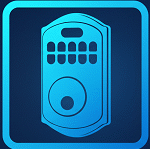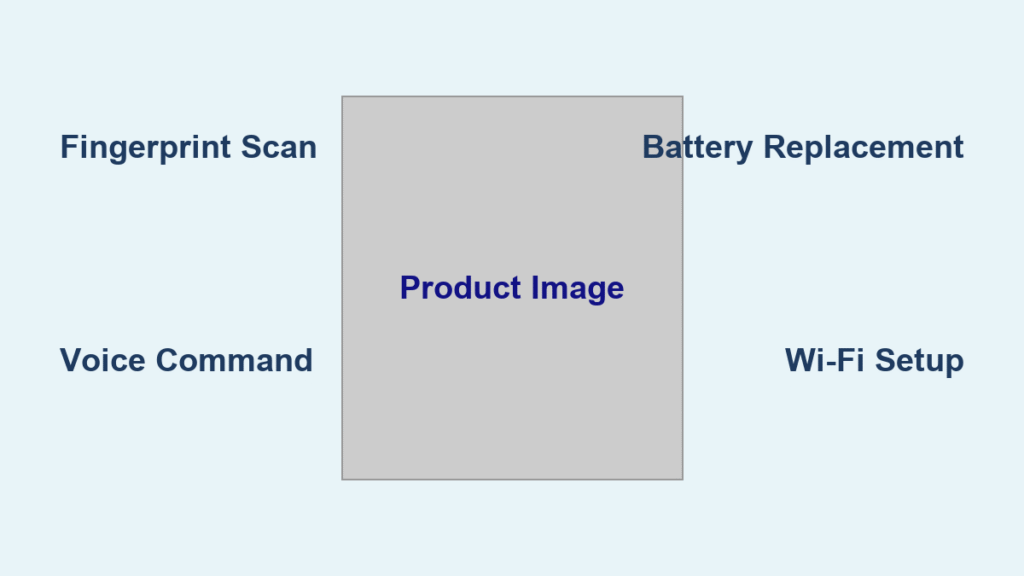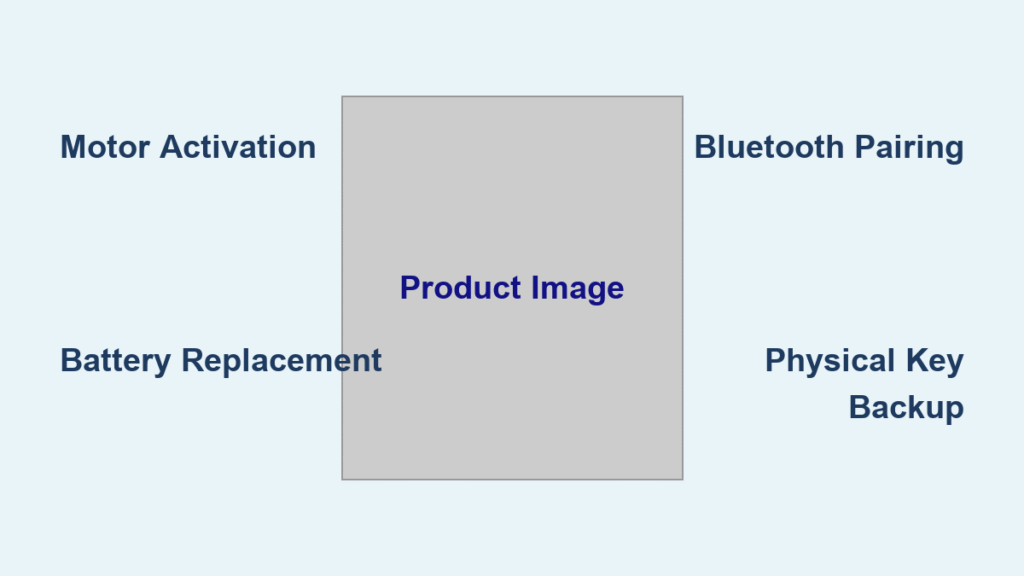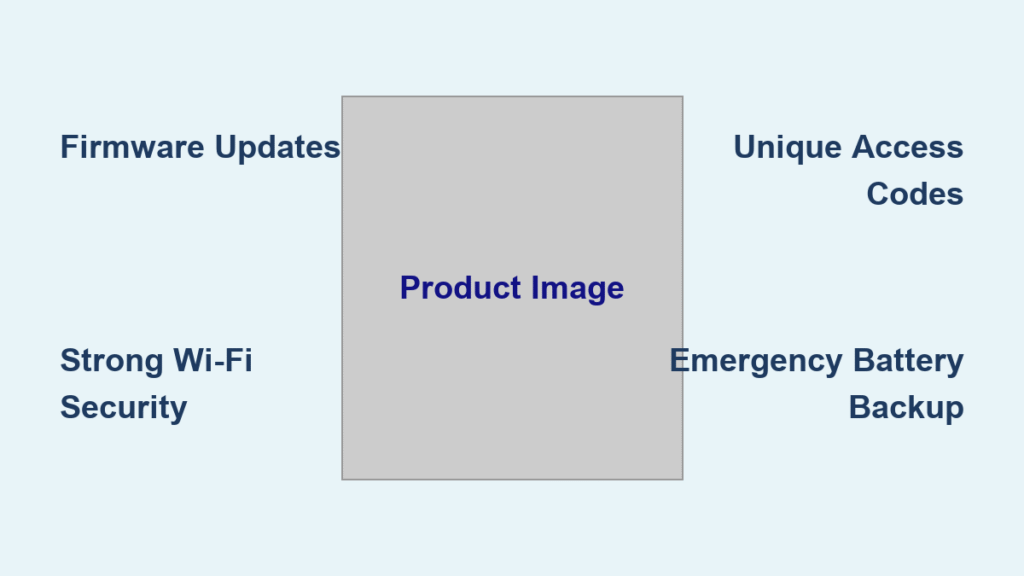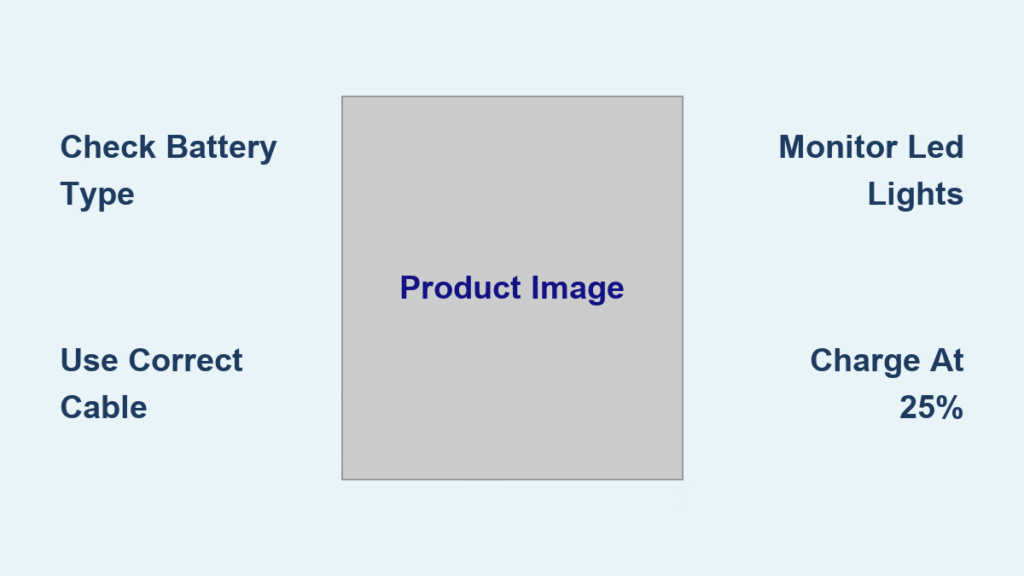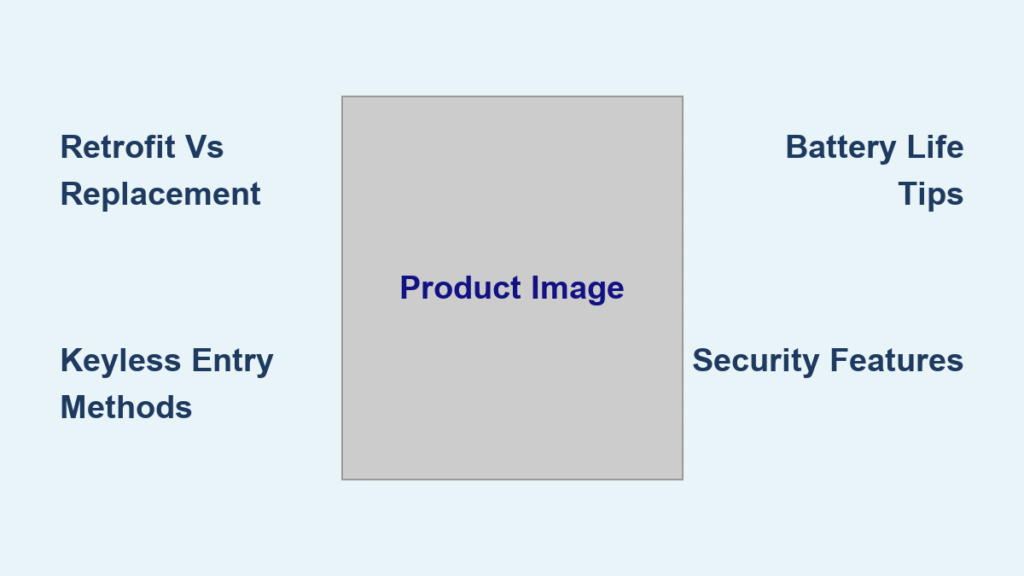Imagine rushing to work only to realize you’ve locked your keys inside. Or coordinating Airbnb guest check-ins at 2 AM from across the country. Smart lock technology eliminates these headaches by transforming your door into an intelligent access point that responds to your phone, fingerprint, or voice command. This digital evolution of physical security offers convenience without compromising safety, making traditional keys increasingly obsolete for modern homeowners and property managers alike.
Smart lock technology integrates seamlessly with your daily routine while providing robust security features that adapt to your lifestyle. Whether you’re managing rental properties, securing your family home, or simply tired of carrying keys, understanding how these systems work will help you make an informed decision. This guide breaks down installation requirements, security protocols, and real-world applications so you can choose and optimize the perfect smart lock for your specific needs.
Why Your Traditional Deadbolt Needs a Digital Upgrade
Smart locks replace manual deadbolt operation with motorized precision. When you tap your phone or scan your fingerprint, an internal computer activates a small motor that physically turns the locking mechanism in under a second. This seamless transition from physical to digital access traces back to 1873 when James Sargent created the first time-controlled safe mechanism, but today’s technology has evolved into sophisticated systems that integrate with your entire digital ecosystem.
How Different Activation Methods Perform in Daily Use
Your choice of activation method significantly impacts both convenience and security:
- Fingerprint scanning (Ultraloq Bolt, Kwikset Halo Touch): Works reliably but can struggle with wet fingers or minor cuts
- Facial recognition (Lockly Visage Zeno): Uses dual infrared cameras for 24/7 functionality but requires proper lighting
- Palm vein recognition (TCL D1 Pro): Highest security option that works through gloves and in various lighting conditions
- Voice commands: “Alexa, unlock the front door” provides hands-free access but requires stable internet connection
Choosing the Right Smart Lock Format for Your Door

Complete Replacement Systems vs. Retrofit Solutions
Complete replacement systems like Ultraloq Bolt Fingerprint or Yale Assure Lock 2 require removing your entire deadbolt assembly. These offer the most features but take 15-30 minutes for DIY installation on standard doors. They’re ideal for homeowners who want maximum functionality and don’t mind modifying their door hardware.
Retrofit solutions like August Wi-Fi Smart Lock preserve your existing exterior hardware while replacing only the interior thumb turn. This makes them perfect for renters or those who prefer maintaining their current door aesthetic. Level Bolt takes this further with nearly invisible interior installation that keeps your door’s appearance unchanged.
Critical Door Compatibility Checks Before Buying
Avoid installation headaches by verifying these measurements first:
- Deadbolt thickness: Must be between 1-3/4″ to 2-1/4″
- Lever handle thickness: 1-3/8″ to 2-1/4″
- Backset requirements: Either 2-3/8″ or 2-3/4″ (measure from center of bore hole to edge of door)
- Bore hole specifications: 1″ edge hole and 2-1/8″ face hole
Maximizing Smart Home Integration with Your Lock

Connectivity Options That Actually Work Reliably
Don’t get trapped by limited range or spotty connections—choose the right protocol for your needs:
- Wi-Fi direct: Enables remote access from anywhere but drains battery faster
- Bluetooth: 30-foot range perfect for automatic unlocking as you approach your door
- Z-Wave/Zigbee: Requires a hub but offers better security and battery life
- Matter protocol: Emerging standard for seamless cross-platform compatibility
Practical Automation Scenarios Worth Setting Up
Transform your smart lock from a convenience tool to a security hub with these automations:
- Create a “Goodnight” routine that locks all doors and activates security cameras
- Set your thermostat to energy-saving mode when the last person leaves
- Trigger outdoor lighting when you unlock your door after dark
- Receive package delivery notifications when couriers access your package box
Essential Security Practices Most Users Overlook
.png)
Critical Vulnerability Points and How to Fix Them
Smart lock technology introduces three primary security concerns that most users neglect:
- Network exposure: Always create a separate IoT VLAN for your smart devices
- Firmware neglect: Enable automatic updates or check for updates monthly
- Weak Wi-Fi security: Use WPA3 encryption with a 20+ character password
Battery Management That Prevents Lockouts
Most users panic when their smart lock battery dies, but proper management prevents this:
- Replace batteries immediately upon first low-power notification (most locks provide weeks of warning)
- Keep a 9V battery in your car or purse for emergency power (works on most models)
- Consider lithium batteries for 2-3 year lifespan versus standard alkaline’s 1 year
Top Smart Locks for Specific Use Cases in 2025

Rental Property Management Solutions
Airbnb hosts break even within 2-3 months through time savings with these features:
- Yale Assure Lock 2: Create temporary guest codes that automatically expire
- August Wi-Fi: Perfect for renters needing non-permanent installation
- Lockly Visage Zeno: Track exact entry/exit times for each guest
Family Home Security Upgrades
Parents eliminate lost key scenarios while monitoring children’s arrivals:
- Ultraloq Bolt Fingerprint: 4.5/5 rating with reliable multi-user management
- Kwikset Halo Touch: Stylish design that doesn’t scream “security system”
- Eufy FamiLock S3 Max: Built-in 2K video doorbell for visual verification
Installation and Troubleshooting Made Simple
DIY Installation Without Common Mistakes
Most installations take 15-30 minutes with basic tools, but avoid these pitfalls:
- Misaligned strike plates cause 70% of operational issues—use the template provided
- Overtightening screws strips door material—hand-tighten plus 1/4 turn
- Ignoring door thickness—measure twice before purchasing to ensure compatibility
Connectivity Fixes That Actually Work
When your smart lock won’t connect, try these solutions before calling support:
- Move your Wi-Fi router closer to exterior doors (or add an extender)
- Disable phone power-saving mode for Bluetooth locks
- Reset the lock by removing batteries for 30 seconds
Future-Proofing Your Smart Lock Investment
Matter Protocol Adoption Timeline
The emerging Matter standard promises universal compatibility across all platforms. Prioritize models with Matter support to avoid obsolescence as this standard rolls out through 2025-2026. Look for the Matter logo on packaging or verify compatibility through manufacturer websites.
Battery Technology Upgrades Worth Considering
While most models use standard AA batteries, premium options now offer:
- Lithium battery compatibility (2-3 year lifespan vs. 1 year)
- Solar charging panels for exterior locks
- USB-C emergency charging ports (works with power banks)
Smart lock technology has evolved beyond simple convenience to become an integral part of modern home security and management. By understanding the different formats, security protocols, and integration possibilities, you can select a system that perfectly matches your lifestyle needs. Start by identifying your primary use case—whether it’s rental property management, family security, or accessibility—and choose features that deliver maximum value for your specific situation. With proper installation and maintenance, your smart lock will provide years of reliable, key-free access that enhances both security and convenience in your daily life.
